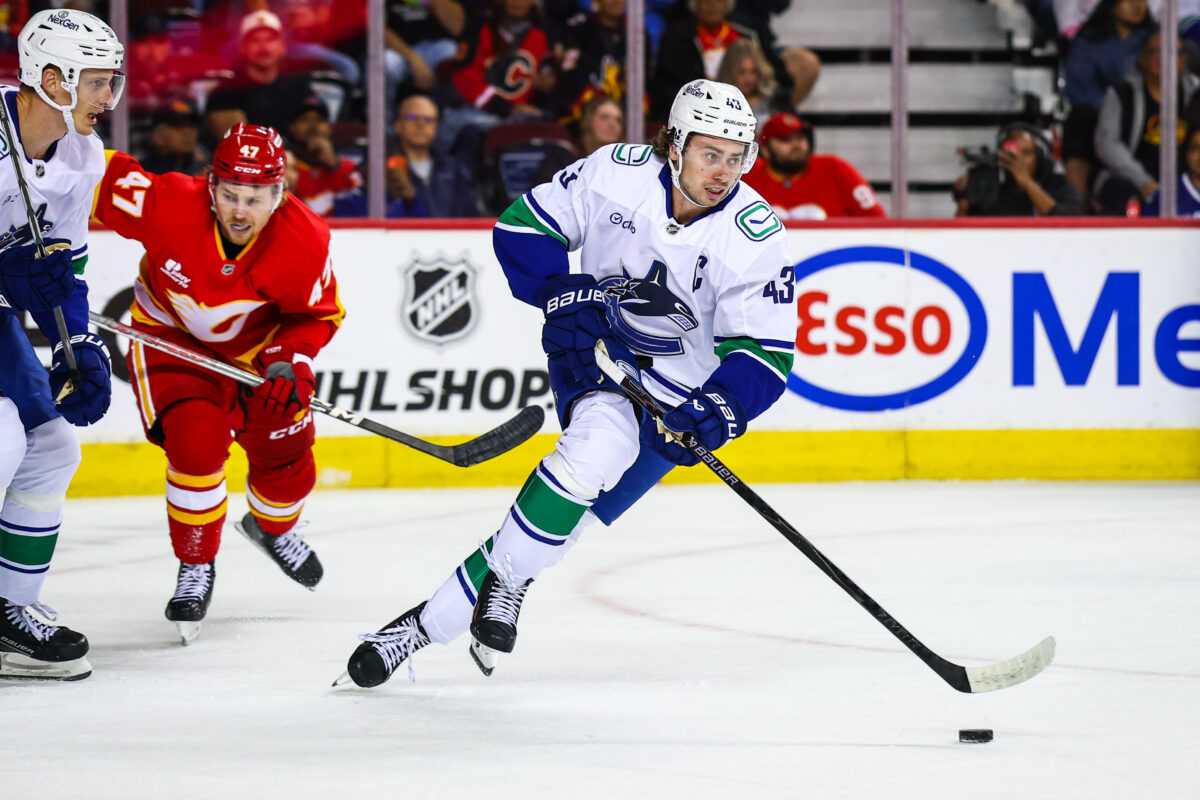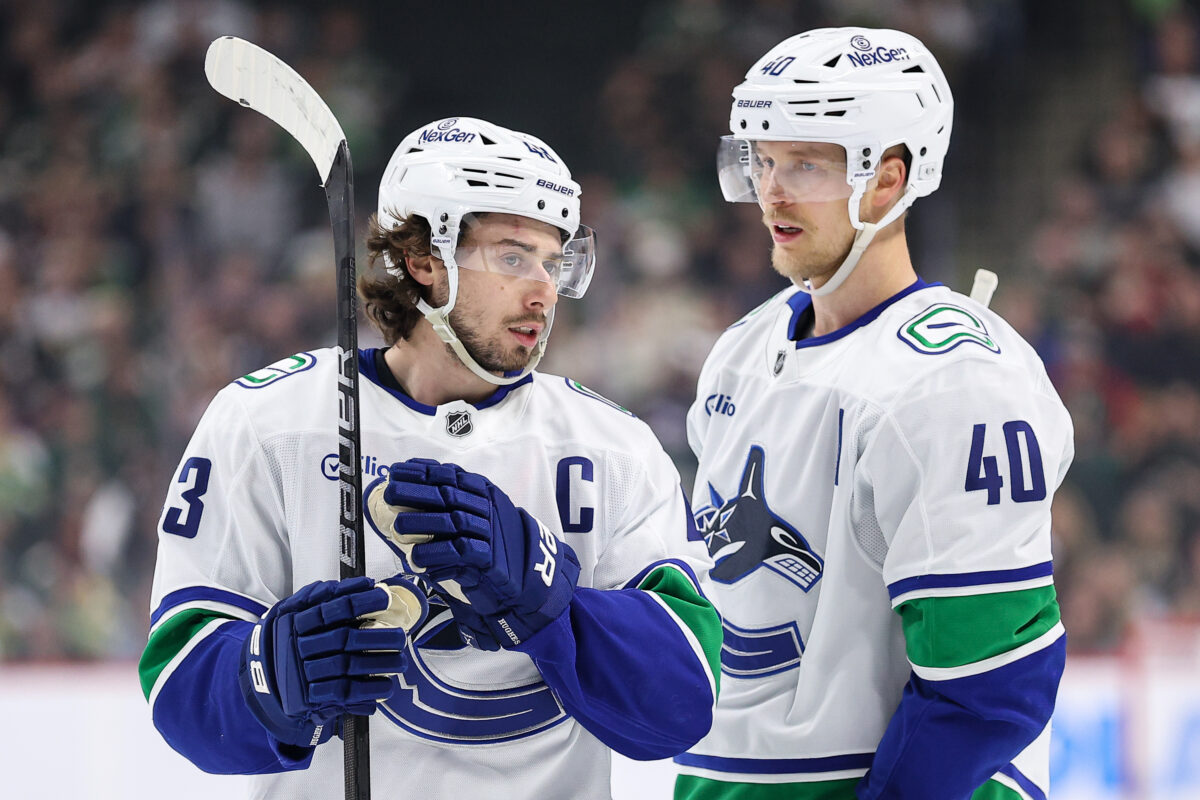The Vancouver Canucks’ captain, Quinn Hughes, has faced a challenging start to the season. Lower-body injuries kept him out of multiple games in late October, including matchups against the St. Louis Blues, New York Rangers, and Edmonton Oilers. He returned against the Nashville Predators on Nov. 3, immediately stepping back onto the top pairing and first power-play unit.
Related: NHL Rumors: Oilers Plans, Maple Leafs Concern, and Canucks’ Goalie Blow
Even after time off, Hughes reminded everyone why he’s among the NHL’s elite defencemen. In Tuesday’s 5-3 loss to the Winnipeg Jets, he assisted on all three Vancouver goals, adding four shots on net and two blocked shots. Over his last four games, he’s tallied six assists, showing the skill and vision that make him the most important player on the Canucks’ blue line, even as injuries and an inconsistent roster limit the team’s overall success.
Hughes’ Elite Skill and Early Responsibility as Canucks Captain
At just 23, Hughes was entrusted with the Canucks’ captaincy — a role few players hold so early in their careers. On the ice, he is smart, poised, and decisive. He logs massive minutes, reads the game with remarkable clarity, sets up teammates, joins the rush, and contributes offensively.
His skating, passing, and hockey IQ place him alongside elite young defencemen like Cale Makar. Hughes’ talent is undeniable; his presence on the ice continues to drive play and create opportunities, even when Vancouver struggles to find consistency.

There is, however, a challenge to taking on leadership at such an early age. Being a captain is more than points, minutes, or skill. It’s about presence, leadership, and “storytelling” — being the voice of the team, even in tough seasons. He needs to use an active voice to create the team’s narrative.
Recently, Hughes Has Faced Challenges as Canucks’ Captain
Lately, that’s where Hughes has faced challenges. Following the Jets’ loss, his post-game availability was brief and terse, with little to share publicly. In so many ways, he’s completely unlike the team’s last captain, Bo Horvat (who has since moved on to the New York Islanders). Horvat could bring energy, hope, and narrative even during difficult stretches (from “Canucks: Quinn Hughes’ apparent misery,” Patrick Johnston, The Province, 11/12/25).
Related: Canucks’ 3 Up, 3 Down: Demko, O’Connor, DeBrusk, Special Teams & More
In filling Horvat’s shadow, Hughes has seemed increasingly reserved. That’s been even more apparent this season. The combination of injuries, an 8-9-1 record, and coaching turnover can weigh heavily on a young leader. His quietness might give the impression that Vancouver lacks a confident voice at the helm, even though Hughes is quietly carrying the team with his play.
Balancing Hughes’ On-Ice Excellence and His Public Leadership
Hughes is far from passive. He amazingly continues to average 28-minute nights, contribute assists, and influence the game at both ends of the ice. The real question is how he can balance his continuing elite performances with a visible, vocal presence that inspires teammates and fans alike.

One wonders if Hughes is completely healed from his injury. He seems down for some reason, and it could be as simple as he hurts. He could also be carrying the weight of his team’s poor play. From the outside looking in, the litany of injuries has taken a toll.
Related: Canucks’ 5 Best-Case Scenarios for 2025-26
But even if that is the case, the logic of it hardly matters when you are personally experiencing the frustrations of losing game after game. Whatever the gap between his quiet personal intensity and the public leadership role his team captaincy demands has never been more obvious.
The Balance That Defines Hughes’ Captaincy
In the end, Hughes embodies both the hope and frustration of this Canucks team. Brilliant, committed, and indispensable, he is tasked with guiding a team through a challenging season. How he navigates the balance between elite play and public presence could define not only his captaincy but the direction of Vancouver hockey for years to come.
In a season full of trials, the Canucks need their captain to signal purpose and energy — not only through his play but through his voice, his actions, and the example he sets for a young team.
Canucks fans have to hope that a winning streak will pick up the mood of the young captain. If not, it could become a longer season than anyone expected.
